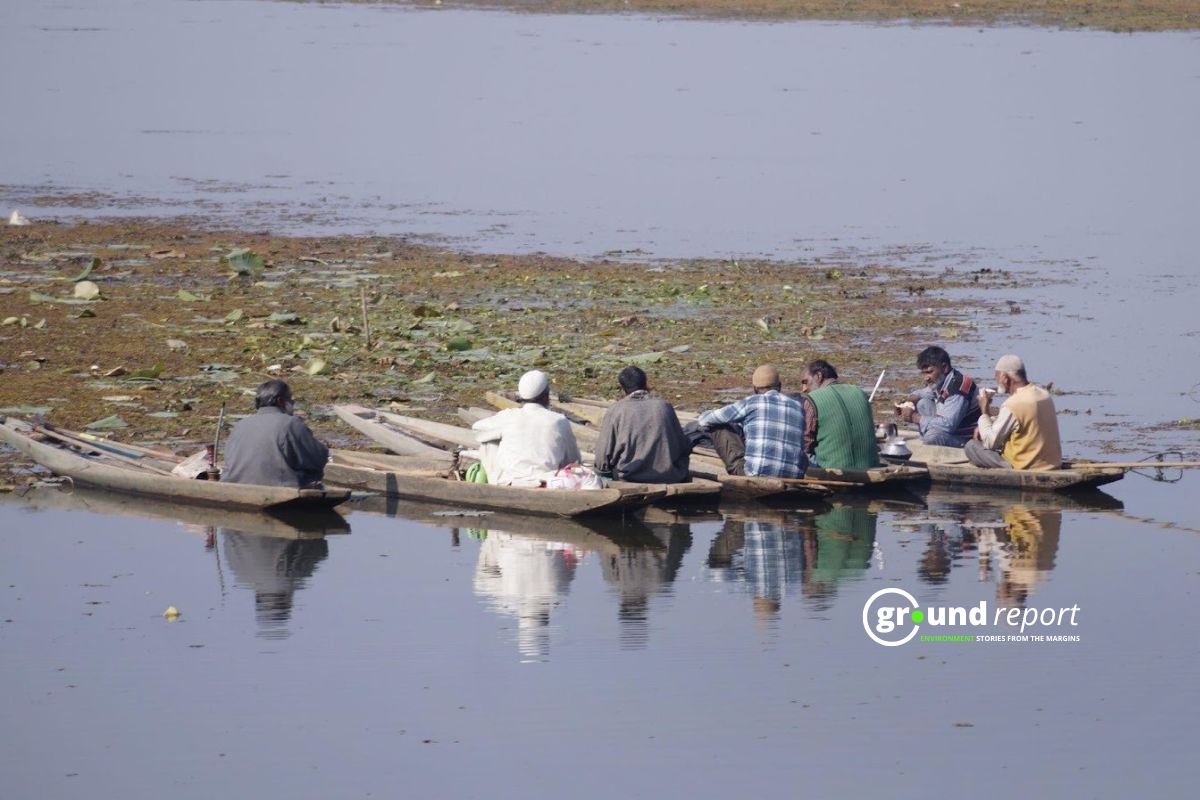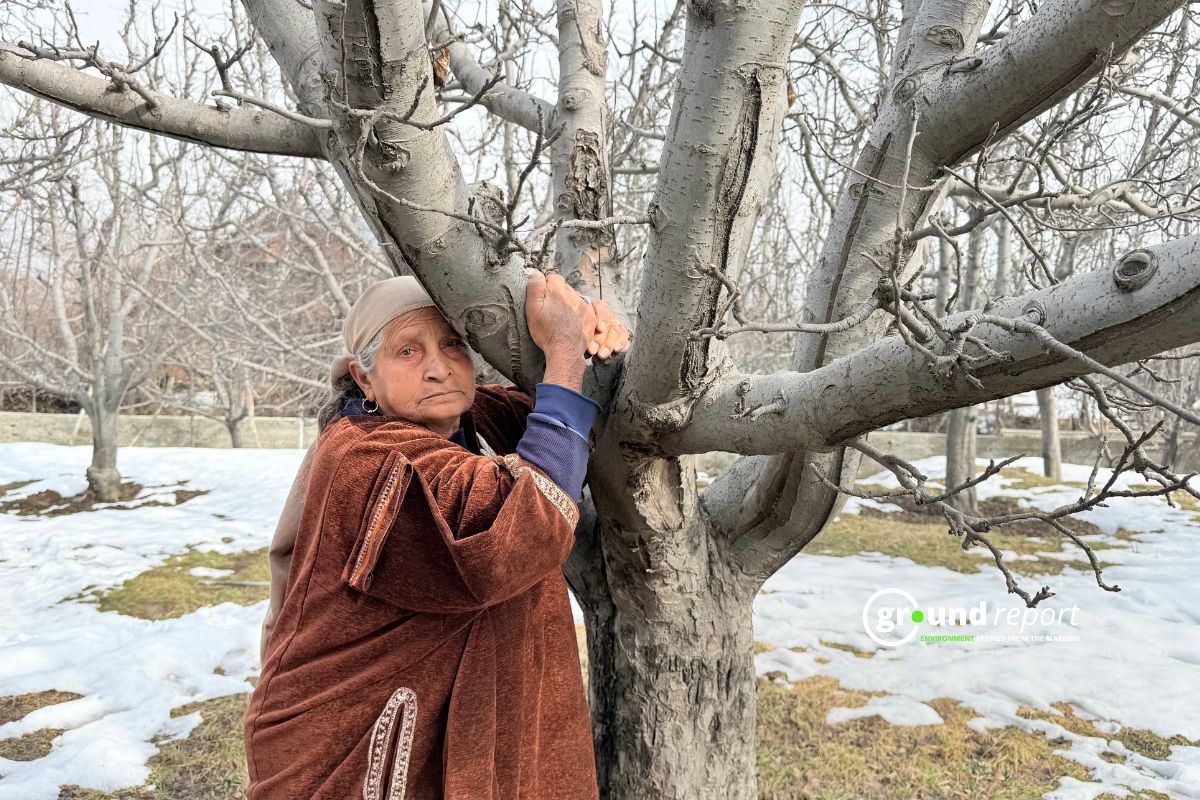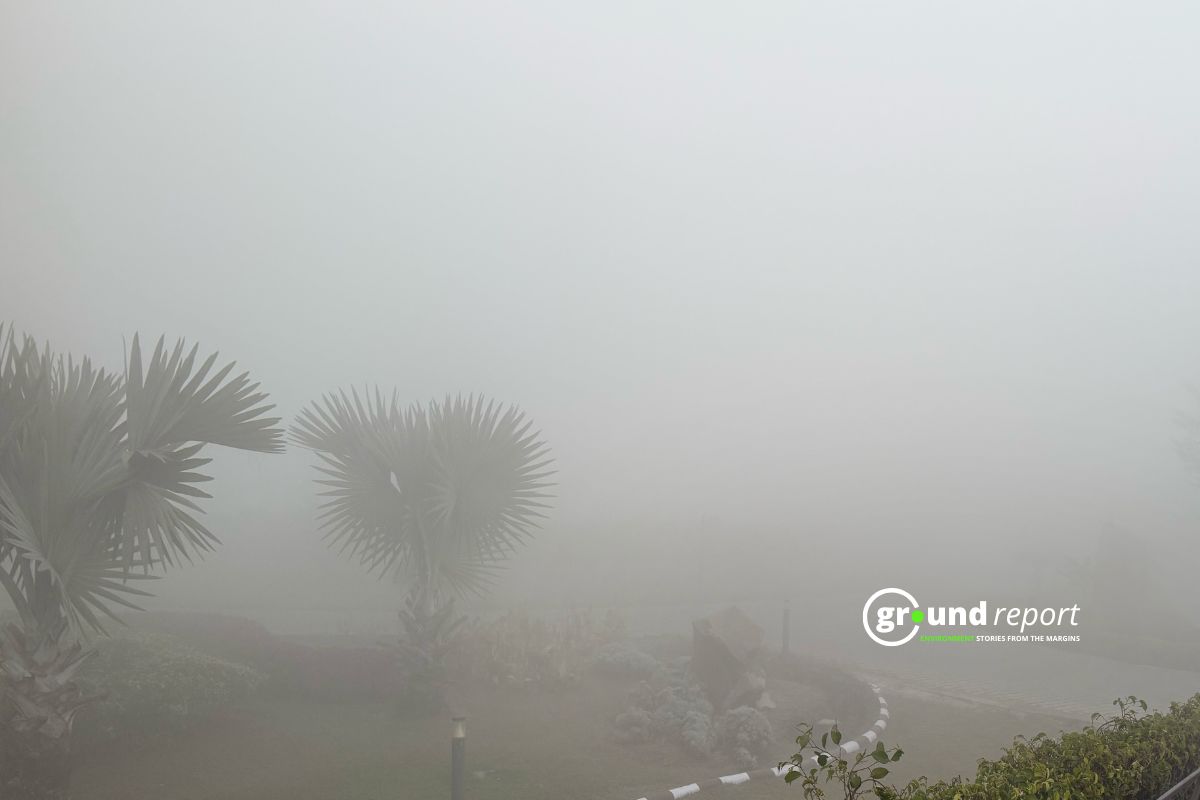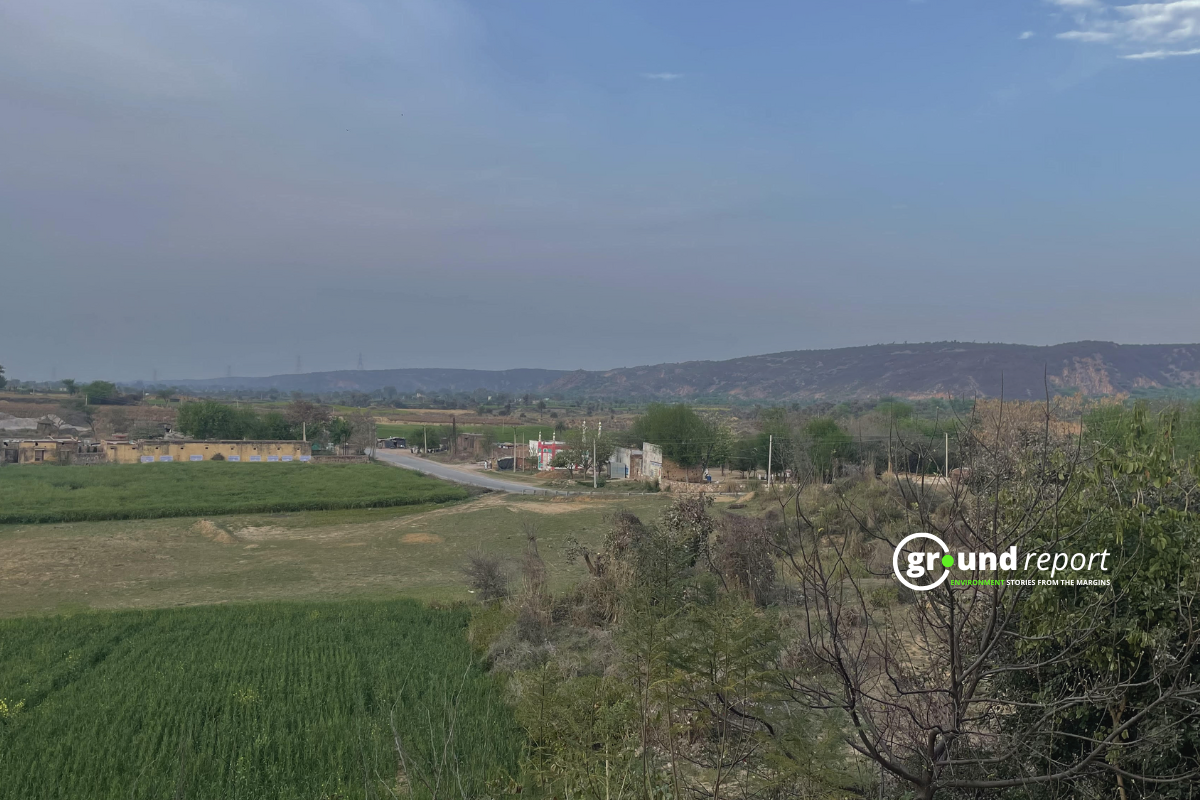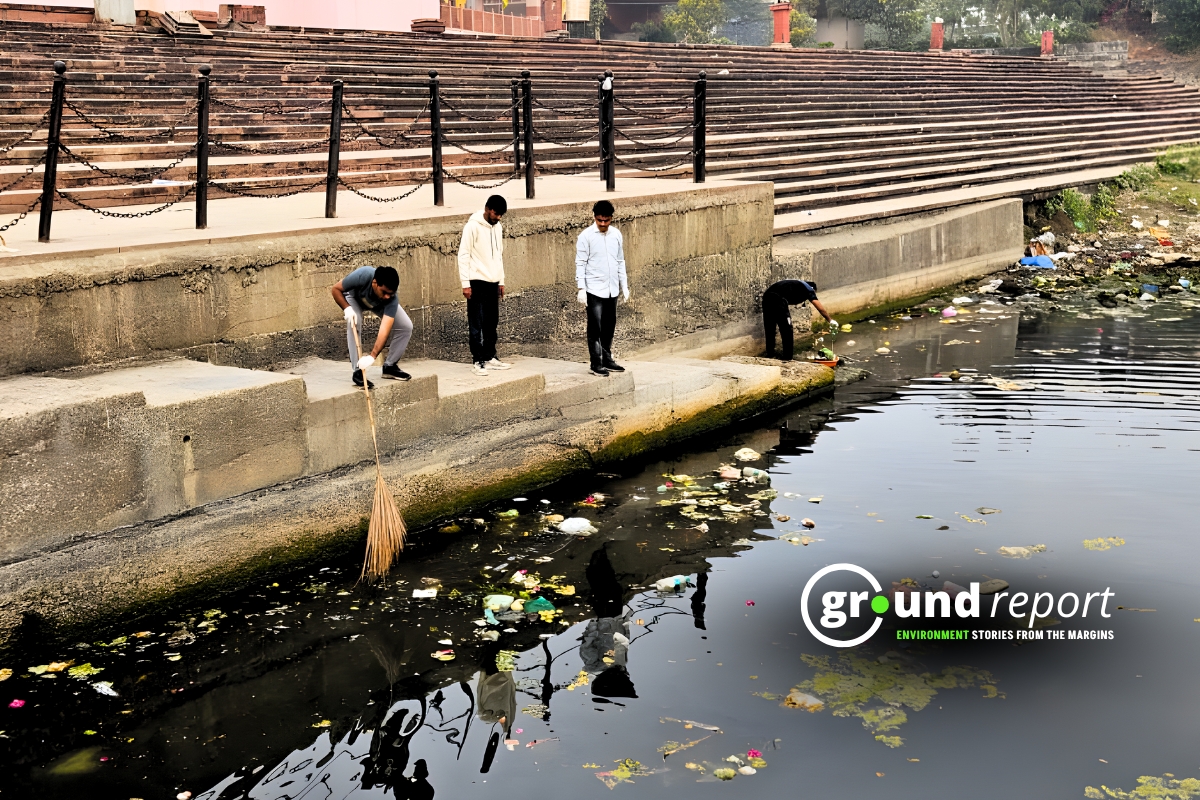In the last week of March, a large number of farmers in Sehore, Madhya Pradesh took to blocking the Jaipur-Jabalpur National Highway. Their grievance? Their wheat crop wasn’t being weighed, and it was being rejected due to soil contamination. Meanwhile, roughly 100 kilometres away, Gajraj Singh Rajput, a farmer from Khajuri Sadak village in the Bhopal district, had a similar tale of anguish about agricultural procurement centres. The Bhopal Lok Sabha seat, which encompasses not only Bhopal but also a significant portion of the Sehore district, is renowned for its wheat production. Currently, the area is represented by BJP politician Sadhvi Pragya Thakur. This time there will be a tough fight between Alok Sharma from the BJP and Arun Shrivastav from the Indian National Congress on the Bhopal Loksabha seat.
As the elections approach in Bhopal, local farmers are facing many problems like crop failures, not enough water, and not getting sufficient help from the government. This makes us wonder: do these farming problems affect how farmers vote? Exploring how farming connects with politics helps us understand what matters to farmers and what it means for the area’s development and leaders. Ground Report is looking into whether farming issues are important in the upcoming elections by talking to farmers in the region.
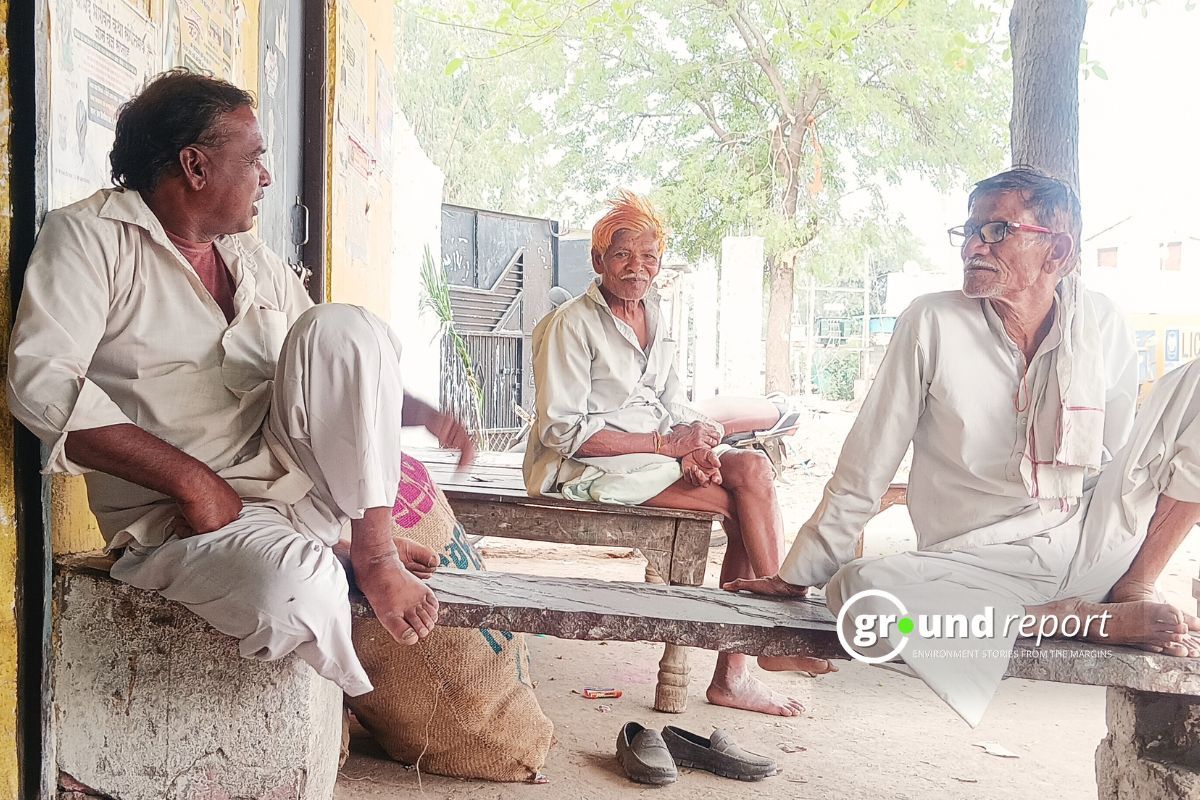
Problems of Agricultural Procurement Centre
“Even though I book online slots, weighing the crop still consumes a significant amount of time. There are instances where we have to wait at the procurement centre for one to two days,” shares Gajraj Singh, a young farmer hailing from Khajuri Sadak village. Singh frequently visits the Agricultural Procurement Center with his crops and highlights the challenges encountered during this process.
Likewise, Arvind Patel, another farmer from the same village, elaborates on the scarcity of enough weighing forks at the centre, leading to prolonged waiting periods for farmers.
“The situation worsens during the wheat procurement season as there are no sheds available at these centres for shade from the sun,” he adds.
To sell their crops at the minimum support price in Madhya Pradesh, farmers have to go to agricultural procurement centres and get their crops weighed after registering online. These centres are warehouses where wheat or related crops are stored after purchase. (Read here to know more about this). In such a situation, after the harvest, the gathering of farmers in these centres increases. But due to lack of facilities here, farmers have to face a lot of problems.
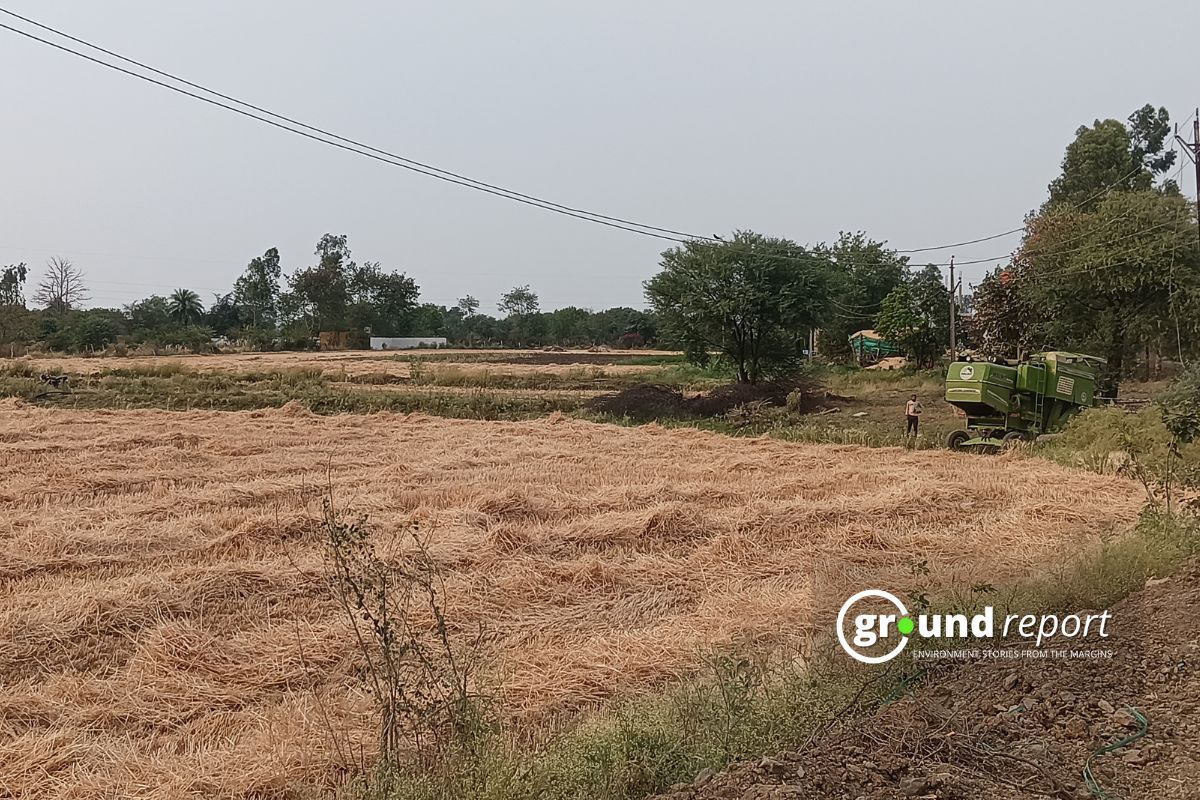
The crop has to be sold at a low price
In the last 10 years, an average of 245.89 crore metric tons has been produced every year in Madhya Pradesh. Last year, the central government purchased 262 lakh tonnes of wheat from across the country on MSP. For this, Rs 47 thousand crore was paid to the farmers by the Central Government. During this period, 70.98 lakh tonnes of wheat was purchased by the government from the farmers of Madhya Pradesh.
The central government has fixed the minimum support price for wheat at Rs 2275 this year, with an additional bonus of Rs 125 provided by the state government. Consequently, the government is procuring wheat from Madhya Pradesh farmers at a rate of Rs 2400 per quintal this year. However, Dwarkadas Bairagi, a farmer from Pipliya Dhakad, finds this inadequate. “The government had pledged to purchase wheat for Rs 2700, but now it’s only offering Rs 2400,” he expresses.
“Every year, the cost of crops rises… Farmers are left with nothing,” he laments.
It is noteworthy that the Indian Farmers Fertiliser Cooperative (IFFCO) had increased the prices of non-urea fertiliser by 58 percent in 2021. That means the price of a 50 kg bag of Di Ammonium Phosphate (DAP) had increased from Rs 1200 to Rs 1900. Similarly, in the year 2022, the rate of wheat seeds was also increased by 10 per cent.
Other Problems
According to farmers and residents, both the villages in Bhopal are blessed with abundant water resources. However, farmers in these areas have noticed a decline in their fields’ productivity due to the excessive use of chemical fertilisers.
“Crop yields are decreasing while expenses are rising. This puts financial strain on us,” says Chhaganlal.
He elaborates that previously, one acre would yield 25 quintals of wheat, but now it has reduced to only 20 quintals. This decline in productivity adversely affects him financially due to the escalating costs.
Chaganlal highlights that farmers in the area lack alternatives to chemical fertilisers. When questioned about assistance from the Krishi Vigyan Kendra, he mentions that it has been over five years since he last saw officials from the Agriculture Department in the fields.
But is this an election issue for them?
In both Khajuri Sadak and Pipliya Dhakad, villagers have only seen their MP on television. The residents of Khajuri Sadak are particularly upset with their MP, Sadhvi Pragya Thakur, for neglecting the village’s development. However, they mention that their local MLA and village head address their needs. They openly admit that when voting, they prioritize Hindutva.
Support us to keep independent environmental journalism alive in India.
Keep Reading
What is Green Hydrogen? Could it change energy in South Asia?
Blue hydrogen is worst for climate: study
How Increasing space traffic threatens ozone layer?
Hydro Fuel Market: India’s current scenario and the future ahead
Natural Gas is a Misleading term, It is not Natural and clean at all
Follow Ground Report on X, Instagram and Facebook for environmental and underreported stories from the margins. Give us feedback on our email id greport2018@gmail.com.
Don’t forget to Subscribe to our weekly newsletter, Join our community on WhatsApp, and Follow our YouTube Channel for video stories.


